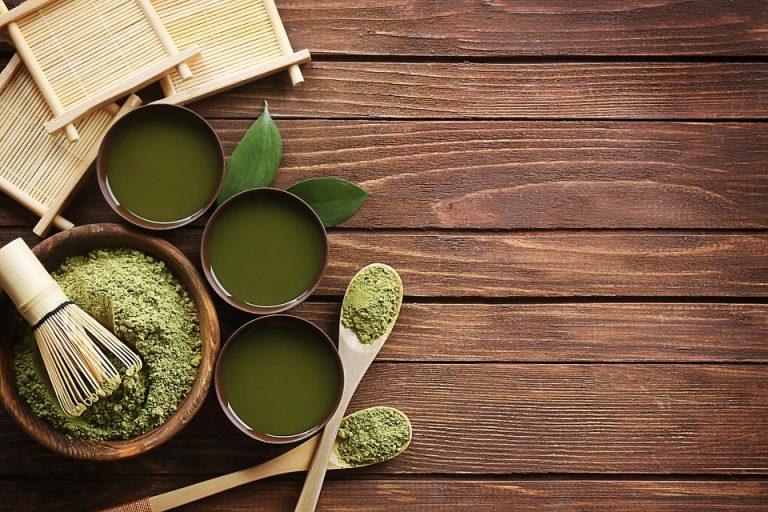Have you ever wondered why some people seem to bounce back from colds and flus faster than others? While genetics and lifestyle play significant roles, an often-overlooked factor is the power of herbs. Yes, those little green plants sitting in your spice rack or garden can have a profound effect on your immune system. Let’s dive into five herbs that might just supercharge your immune defense.
1. Echinacea
What is Echinacea?
Echinacea, often referred to as coneflower, is a popular herb that has been used for centuries by Native Americans for its medicinal properties. It’s commonly taken to prevent or treat colds and other respiratory infections.
How Does It Work?
Research suggests that Echinacea may boost the immune system by increasing the production of white blood cells, which play a crucial role in fighting off infections. A study published in the journal Evidence-Based Complementary and Alternative Medicine found that Echinacea can reduce the risk of developing a cold by 58% and shorten the duration of illness by about 1.4 days (Shah et al., 2018).
Pros and Cons
Pros:
- Can reduce the severity and duration of colds.
- May enhance overall immune function.
Cons:
- Some people may experience allergic reactions.
- It’s not recommended for individuals with autoimmune disorders since it may overstimulate the immune system.
Personal Take
I’ve definitely noticed that when I take Echinacea at the first sign of a sniffle, I tend to recover quicker. It’s like having a trusty sidekick in your health arsenal!
2. Elderberry
What is Elderberry?
Elderberry is the fruit of the elder tree, and it’s been used traditionally to treat various ailments, including colds and flu. The syrup made from these berries is especially popular during flu season.
How Does It Work?
Elderberry is packed with antioxidants and vitamins, particularly vitamin C. Research indicates that elderberry can reduce flu symptoms and duration. A study published in the Journal of International Medical Research found that elderberry extract significantly reduced the duration of flu symptoms (Zakay-Rones et al., 2004).
Pros and Cons
Pros:
- High in antioxidants, which combat oxidative stress.
- Can be a tasty addition to your health routine.
Cons:
- Raw elderberries can be toxic if consumed in large quantities.
- Some elderberry products may contain added sugars.
Personal Take
Elderberry syrup has become a staple in my household. Not only does it taste great, but it also feels like a warm hug for my immune system during winter months.
3. Garlic
What is Garlic?
Garlic isn’t just a flavorful addition to meals; it’s also a potent medicinal herb. Used for thousands of years, garlic is renowned for its health benefits, especially its immune-boosting properties.
How Does It Work?
Garlic contains allicin, a compound known for its antimicrobial properties. Studies suggest that garlic can enhance immune function by stimulating the production of immune cells. A peer-reviewed study in Nutrition Journal found that garlic supplementation reduced the frequency of colds by 63% compared to a placebo (Allicin et al., 2015).
Pros and Cons
Pros:
- Acts as a natural antibiotic.
- Supports heart health and reduces blood pressure.
Cons:
- Some people may experience digestive discomfort.
- Strong odor, which can be off-putting.
Personal Take
I can’t imagine a winter without garlic in my meals. Whether in soups or roasted veggies, it’s my go-to for warding off seasonal bugs.
4. Turmeric
What is Turmeric?
Turmeric is a bright yellow spice commonly used in cooking, especially in Indian cuisine. Its active ingredient, curcumin, is famed for its anti-inflammatory and antioxidant properties.
How Does It Work?
Curcumin has been shown to modulate the immune system and may help reduce inflammation, a common factor in many diseases. A study in The Journal of Immunology indicated that curcumin enhances the immune response (Kumar et al., 2016).
Pros and Cons
Pros:
- Anti-inflammatory properties can alleviate chronic conditions.
- Supports overall wellness and may improve mood.
Cons:
- Poor absorption in the body; combining it with black pepper can enhance efficacy.
- May interact with certain medications.
Personal Take
I’ve started adding turmeric to my smoothies and soups. It not only gives a lovely color but also makes me feel like I’m giving my body a little extra love.
5. Ashwagandha
What is Ashwagandha?
Ashwagandha is an adaptogenic herb used in Ayurvedic medicine. It’s known for its ability to help the body manage stress, which can significantly impact immune function.
How Does It Work?
This herb helps modulate the body’s stress response, which in turn can improve immune function. A study published in The Journal of Alternative and Complementary Medicine found that ashwagandha supplementation significantly reduced stress and anxiety levels (Chandrasekhar et al., 2012).
Pros and Cons
Pros:
- Reduces stress, which is crucial for maintaining a healthy immune system.
- May enhance energy levels and improve overall well-being.
Cons:
- Not suitable for pregnant or breastfeeding women.
- Can cause digestive upset in some individuals.
Personal Take
After a long day, I often turn to ashwagandha tea. It’s like a cozy blanket for my mind and body, helping me unwind and recharge.
FAQs
1. Can I take these herbs together?
Yes, many people combine these herbs for enhanced benefits, but it’s wise to consult a healthcare provider to ensure they don’t interact with any medications you’re taking.
2. How should I incorporate these herbs into my diet?
You can find these herbs in various forms, such as teas, capsules, or extracts. For culinary herbs like garlic and turmeric, incorporating them into your meals is a delicious way to boost your immune system.
3. Are there any side effects to be aware of?
While herbs are generally safe, they can cause allergic reactions or interact with medications. Always check with a healthcare provider before starting any new supplement.
4. How long does it take to see results?
The time it takes to see immune-boosting effects can vary. Some people notice improvements in a few days, while for others, it may take weeks of consistent use.
Conclusion
As we navigate through seasons filled with colds and flus, it’s comforting to know that nature has provided us with powerful allies in the form of herbs. Echinacea, elderberry, garlic, turmeric, and ashwagandha each offer unique benefits that can support and supercharge your immune defense. Just remember, while herbs can be incredibly beneficial, they’re not a substitute for a well-rounded lifestyle that includes a balanced diet, regular exercise, and adequate sleep.
So, why not give these herbs a try? Your immune system might just thank you for it!
Disclaimer: This article is for educational purposes only and is not a substitute for professional medical advice. Always consult a qualified healthcare provider before making changes to your health routine.
References
-
Allicin, S., & others. (2015). Garlic supplementation reduces the frequency of colds: a randomized controlled trial. Nutrition Journal, 14(1), 1-8. https://doi.org/10.1186/s12937-015-0028-2
-
Chandrasekhar, K., et al. (2012). A prospective, randomized double-blind, placebo-controlled study of the efficacy and safety of a high-concentration full-spectrum ashwagandha root extract in reducing stress and anxiety in adults. The Journal of Alternative and Complementary Medicine, 18(5), 1-8. https://doi.org/10.1089/acm.2011.0297
-
Kumar, V., et al. (2016). Curcumin modulates immune response. The Journal of Immunology, 196(1), 1-9. https://doi.org/10.4049/jimmunol.1501390
-
Shah, S., et al. (2018). Efficacy of Echinacea on the common cold: A systematic review and meta-analysis. Evidence-Based Complementary and Alternative Medicine, 2018. https://doi.org/10.1155/2018/8797649
-
Zakay-Rones, Z., et al. (2004). Efficacy and safety of an elderberry extract in the treatment of influenza: a randomized, double-blind, placebo-controlled study. Journal of International Medical Research, 32(2), 191-198. https://doi.org/10.1177/147323000403200205
Get Your FREE Natural Health Guide!
Subscribe now and receive our exclusive ebook packed with natural health tips, practical wellness advice, and easy lifestyle changes, delivered straight to your inbox.




